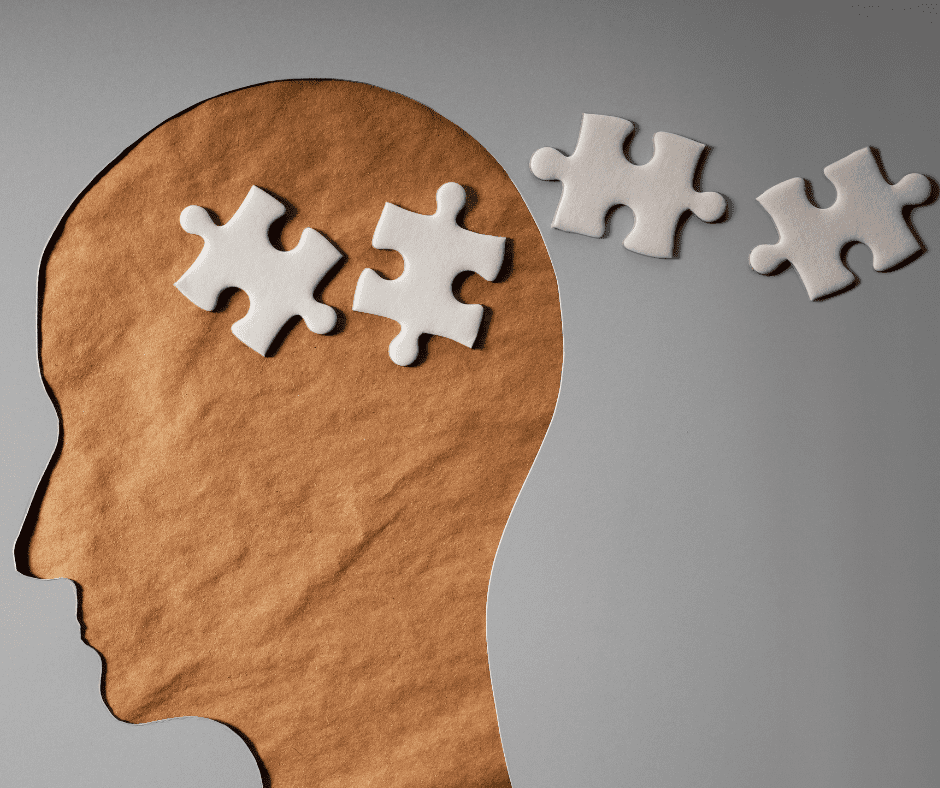What Happens as Dementia Progresses?
As people approach the more advanced dementia stages, they become more like strangers to those who know and love them. Their personalities often change significantly, making their family members feel robbed and heartbroken. And they become unable to perform activities of daily living without assistance. Eventually, their minds and bodies fail entirely.
During Mid-stage Dementia (also known as moderate-stage dementia), the symptoms grow more intense and restricting. A person may show many of the symptoms already described, but they will be increasingly hampered by them. By this point, dedicated dementia care is almost always necessary. For people at this stage, memory issues, behavior, and decision-making become more problematic. And they often start needing assistance with tasks like eating, going to the bathroom, bathing, and getting dressed. They also may wander haphazardly, have delusions, grow suspicious of other people, and take compulsive actions.
During Late-stage Dementia (also known as severe dementia or end-stage dementia), a person’s brain is so damaged that even basic bodily functions are affected. Patients at this stage need 24/7 care since they are totally dependent on their caregivers. Their abilities to move, speak, swallow, breathe, and control their bowels and bladder are often severely limited, to the point of failure in many cases.
Life Expectancy
It’s sad but true: A person can die from dementia. Most types of dementia are fatal since they’re currently incurable. But, aside from rare forms of dementia, it can take anywhere from three to 20 years for dementia to progress from diagnosis to death. Whether you’re talking about Alzheimer’s disease, LBD, FTD, or vascular dementia, life expectancy after the first onset of symptoms varies from patient to patient. What researchers do know is that the biggest factors involved in the life expectancy of dementia patients include:
- Gender: Women with dementia tend to live longer, on average, than men.
- Age: The older you are when symptoms first appear, the less time you can generally expect to live.
- The severity of symptoms when diagnosed: The more impaired your cognitive functions are when receiving your dementia diagnosis, the less time you are likely to live.
An older person can live with dementia for between roughly four and 11 years, depending on their age. Here’s how that breaks down for seniors and elderly people, according to a study in The BMJ:
- 65 to 69 years old: 10.7 years
- 70 to 79 years old: 5.4 years
- 80 to 89 years old: 4.3 years
- 90 years old or above: 3.8 years
How Dementia Is Diagnosed
Unfortunately, a single, 100-percent-accurate test for dementia doesn’t exist yet. And many cases of dementia can only be completely confirmed with an autopsy.
That means doctors often have to make a “best guess” determination and classify their living patients as having either “possible” or “probable” dementia. So, how is dementia diagnosed in patients who are still alive? It requires multiple steps.
First, a doctor will take a comprehensive medical history. A thorough physical exam will then be performed, which might include simple neurological tests for evaluating things like speech, coordination, eye movement, and reflexes. The doctor will order lab tests to help rule out other illnesses and check various health markers such as blood counts and nutrient and hormone levels. The tests will not be invasive. They will be based on blood and urine samples. A brain scan may also be ordered, especially if the doctor suspects vascular dementia. A brain scan may also be ordered, especially if the doctor suspects vascular dementia. Finally, the patient will participate in various tests for assessing mental ability.
Several aspects of a patient’s mental abilities are usually evaluated, including:
- Short-term recall: The doctor may name three random objects (or a name and address) and ask the patient to say them back and remember them later.
- Verbal communication: The patient may be asked several open-ended questions to see how well they use and understand language.
- Concentration: The doctor may ask the patient to perform a simple mental exercise that requires sustained focus and attention, such as counting backward.
- Information and orientation: The doctor may check to see if the patient can give correct and specific answers to basic questions about the date, location, recent events, and universally known facts.
- Learning and retention: The patient may be asked to recall and repeat the three objects (or name and address) that were spoken earlier.
The clock-drawing test is another simple assessment tool that’s often used. A patient is asked to draw a traditional round clock with all the numbers and hands showing a specific time. Any errors in the hands or numbers placement indicate cognitive problems that need to be further evaluated.
A doctor will also usually ask a patient’s loved one or caregiver about any abnormal behavior or abilities changes. Once the doctor has gathered all the results and information, they will either diagnose the patient or refer them to another medical professional for additional evaluation.
Caring for a loved one with dementia poses many challenges for families and caregivers. If your loved one is showing symptoms of Dementia, we are here for you!! Schedule a meeting with us to discuss further. Contact 832-944-8111 or email [email protected]

